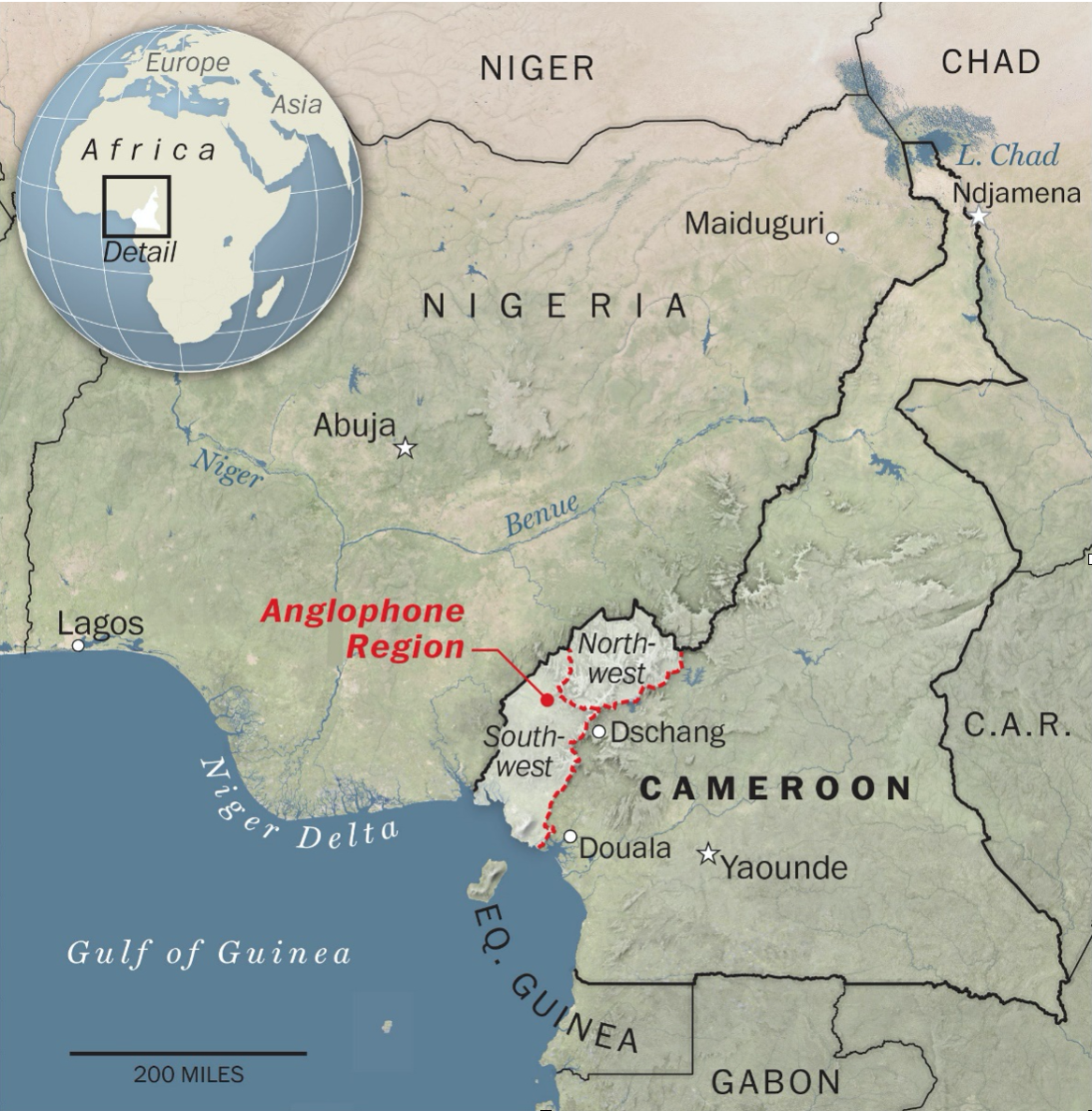The Unseen War for Independence from Cameroon
President Paul Biya of Cameroon announced his intention to start dialogues in September of 2019. It was the first time Biya publicly acknowledged the conflict in the country’s Anglophone regions. Cr: Nsi Mababu
By: Julian Mok
Lexington — Abandoned homes and bullet-riddled buildings line Mile 16, a highway that runs through the two English-speaking regions in western Cameroon. The country is on the edge of civil war. Grappling with its colonial past and the strained relationship between a French-speaking majority and English-speaking minority, Cameroon’s Anglophone Crisis stems from a decision made after the First World War to divide the country into two separate spheres of influence under France and Great Britain.
English and French are both officially recognized languages in Cameroon. English-speakers make up a fifth of the population and generally reside in two contiguous regions along the border of Nigeria. Anglophone separatists have proclaimed this region “Ambazonia,” fighting for its secession and independence from Yaoundé. Over the course of this conflict, hundreds of civilians have died and over 500,000 have fled to Nigeria. The situation was not always so dire.
Hundreds of civilians have died in Cameroon’s Anglophone Crisis and over 500,000 have fled to Nigeria. (Map Source: The Independent)
The protests in 2016 began with innocent demands. Anglophone attorneys struck for better legal and civil right – teachers and students later joined the peaceful protest to demand for a curriculum that treated English and French speakers more fairly. In a country where power was concentrated in Francophone hands, English-speakers called for equality. These protests were, however, met with a violent government crackdown and indiscriminate arrests. English separatists responded by forming Ambazonia and called for nothing less than independence.
The Ambazonian Military Force (AMF), known as the “Amba-boys,” are an organized militant group composed of fighters from various militia like the Red Dragons or the Southern Cameroon Defense Forces tasked to fight against the Cameroon Armed Forces. Where the Amba-boys lack in weapons and supplies, they make up for in faith. Ambazonian fighters have put their faith in odeshi, a type of mystical armor that is believed to make them fearless and invincible.
Soldiers protected by odeshi magic wear enchanted amulets, each with a certain purpose: bracelets for invisibility and necklaces that make them bulletproof. Amba-boys often call upon their local healers to perform rituals that will render them invincible the night before battle. Tambe Ingwana, an AMF commander protected by odeshi says, “Even if you tie a bag of cement to me, and throw me into the water, I will still come out…I will survive.”
Despite the separatists’ determination to secede, President Paul Biya is unlikely to allow it to happen. Ambazonia contains vast palm oil, rubber and banana plantations, not to mention the country’s only oil refinery, which is vital to its economy. In the latest attempt to appease separatists, President Biya has granted Ambazonia “special status,” which places judicial and education systems into the hands of Anglohpones. This, however, has not been enough. Ivo Tapang, a spokesman for an Ambazonian militant group, declared, "We want independence and nothing else.”
Although this conflict has been ongoing for over three years, it has escalated outside of the international limelight. The United Nations first addressed the matter on May 13, 2019; by that time, 500,000 people had already become displaced. Those who did not flee joined the cause. Ambazonians have relied on their resourcefulness to fight against a more equipped and better trained Cameroonian military. A sympathetic Nigerian Army has provided the AMF means of acquiring weapons and supplies from foreign powers.
The Anglophone-Francophone conflict in Cameroon stems back to colonial times and appears to be here to stay. Continual marginalization of English-speakers by Yaoundé reached a tipping point in 2016, forming the foundation of the Anglophone Crisis and pushing the country towards what could be an impending and devastating civil war.


